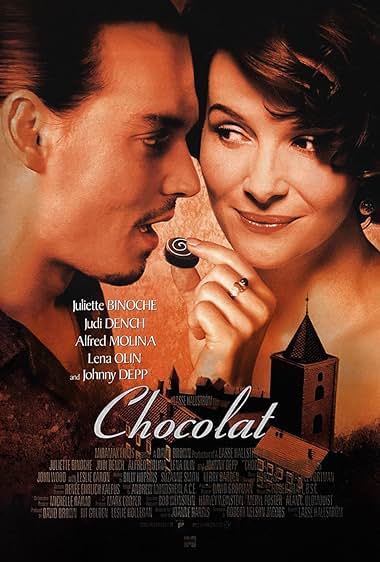A French woman and her young daughter open up a chocolate shop in a small remote village that shakes up the rigid morality of the community.
It's early 1959 in a provincial French village, where residents know their place, and if they see something against the unspoken rules, they are to look the other way. The only exception to this rule is the Mayor, le Comte de Reynaud, who is seen as the town's moral authority, even more so than Pere Henri, the new young Catholic priest whose sermons are vetted by le Comte. Literally blowing into town is free spirit Vianne Rocher and her adolescent daughter Anouk Rocher, who move from place to place wherever the north wind takes them. Renting the long empty space that used to house the patisserie, the property owned by elderly Armande Voizin, Vianne instead opens a chocolaterie which none of the residents are aware of until it opens. While Vianne, through the chocolaterie, is able to help certain residents in exposing some of the village's hidden ills, she nonetheless raises the ire of le Comte in almost everything about her being: that she is promoting the indulgence of chocolate in the season of Lent, a period of abstinence and penitence; that she does not attend church; and that she has never been married meaning that Anouk is illegitimate. Vianne is viewed in an even less flattering light when she takes up with Roux, the lead of a band of self-confessed river rats floating into town, he, who like Vianne, is a nomadic free spirit. The questions become who between Vianne and le Comte will outlast the other or come to an understanding of the errors of their ways to be able to live in harmony with the other.-Huggo
